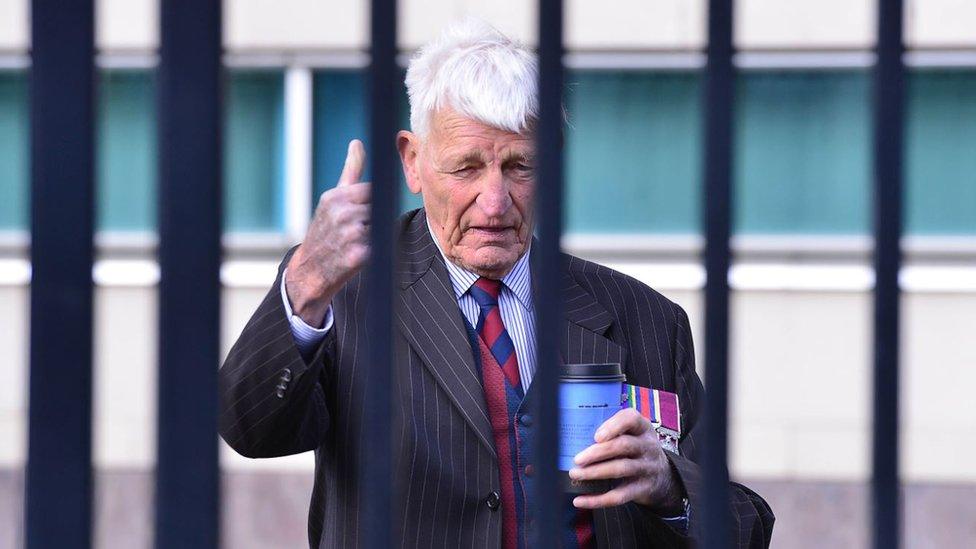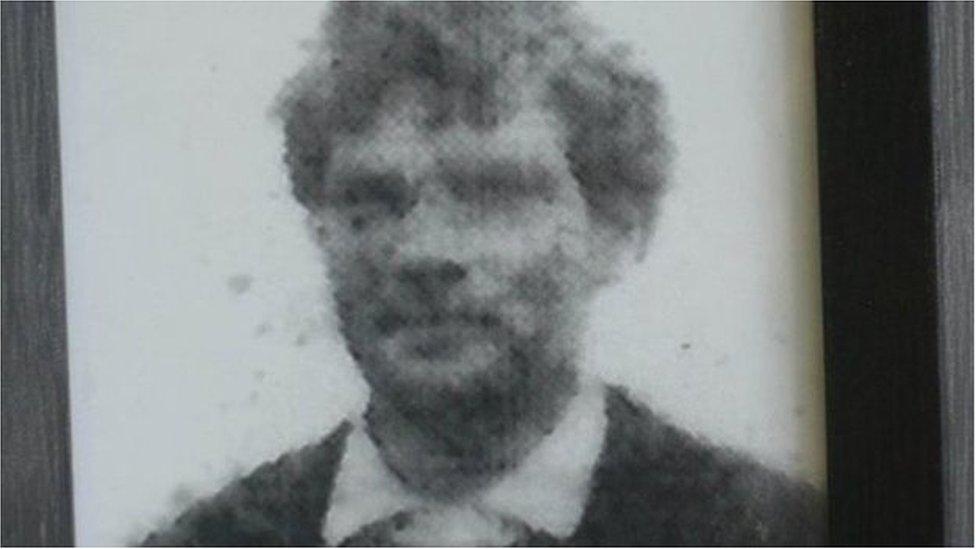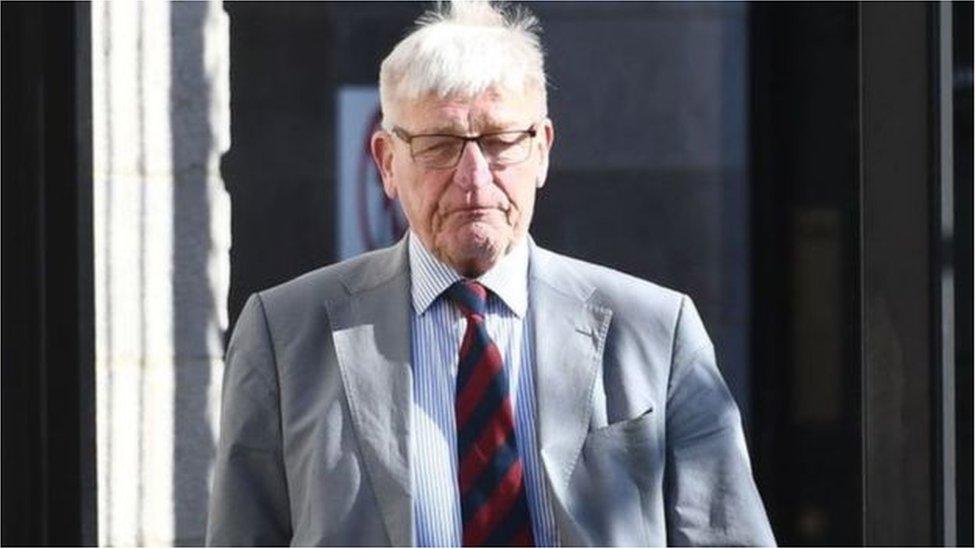Dennis Hutchings: Ex-soldier denies attempted murder
- Published

Dennis Hutchings arriving at the Crown Court in Belfast on Monday
The trial of an ex-soldier on charges related to a fatal shooting during the Troubles has heard the victim had "the mind of a child".
Dennis Hutchings, 80, denies attempting to murder and cause grievous bodily harm to John Patrick Cunningham in County Tyrone 47 years ago.
Mr Cunningham, 27, who had a learning difficulty, was shot in the back as he ran from an Army patrol in 1974.
Mr Hutchings, from Cornwall, is an ex-member of the Life Guards regiment.

John Pat Cunningham was 27 at the time of his death but had a mental age of between six and 10
The Diplock-style, non-jury trial before Mr Justice O'Hara opened at the Crown Court in Belfast on Monday and is expected to last up to four weeks.
It will sit for three days each week to allow Mr Hutchings, diagnosed as suffering from an incurable chronic kidney disease, to receive on-going treatment.
Mr Hutchings, who was accompanied to court by Conservative MP Johnny Mercer, appeared in the dock wearing his military medals.
Opening the case against him, prosecution lawyer Charles MacCreanor QC said Mr Cunningham was fatally shot and killed in a field at Carrickaness Road, on the outskirts of Benburb village.
He said the shooting was "unjustified" and went "beyond the Army's own rules for engagement".
Mr MacCreanor said soldiers had described Mr Cunningham as appearing "startled" at their arrival before making off.
The court heard how the defendant immediately gave chase and at one point was no more that ten feet from Mr Cunningham.
'No forensic evidence'
Other soldiers say they heard Mr Hutchings, their patrol leader, shout a warning to Mr Cunningham before shots rang out.
One civilian witness said the shooting took place "no more than 15 to 30 seconds" after the warnings were shouted.
Up to five shots were fired, three from Mr Hutchings' rifle and two from the rifle of another soldier who has since died.
Mr MacCreanor accepted that the case against Mr Hutchings was circumstantial and that he was not facing a murder charge as there was "no forensic evidence to identify which bullets struck" Mr Cunningham as they were "never recovered".
However, he claimed that Mr Cunningham's shooting "could never be lawful or justified" as he was unarmed, adding that the distance he was able to run in the open field before being shot was also "a matter of significance" in terms of timing and any perception of him posing a threat.
Mr MacCreanor said Mr Hutchings had a clear view "in his sights" of Mr Cunningham running away before deciding to open fire.
The shots he fired were "completely inconsistent with warning shots", the prosecution lawyer added.
A niece and two nephews of the dead man sat in the public gallery listening as Mr MacCreanor told the court that their uncle was a man who was known in his local area as someone in need of special care.
He said his priest said Mr Cunningham had "the mind of a child".
The lawyer said Mr Cunningham was afraid of the Army and of people in uniform. If confronted by soldiers, he was "likely to run away and hide," he said.
The trial has been adjourned until Wednesday.
Related topics
- Published3 June 2020
